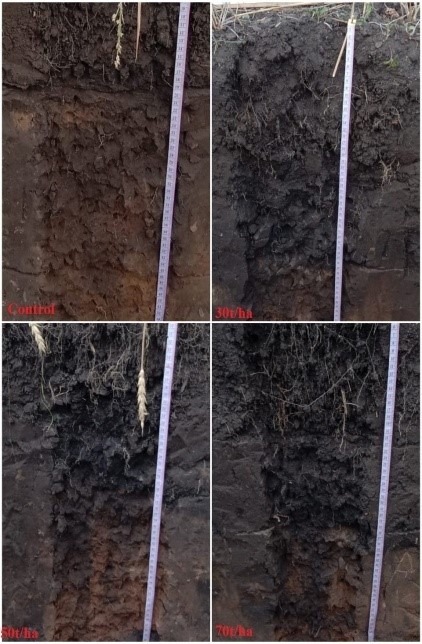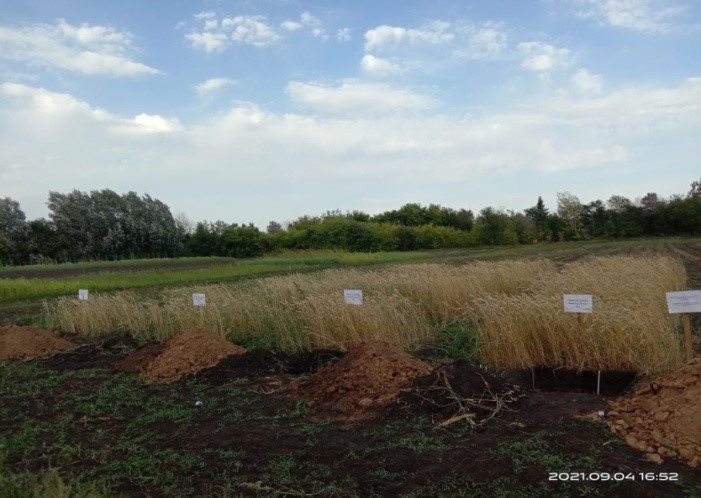In mid-December 2025, the РА "Red Crescent Society of the Republic of Kazakhstan" held a short film competition on the theme "Fundamental Principles o Read more
Quotation gallery
Knowing is not enough; we must apply!
Faculty News
On December 26, 2025, the Faculty of History, Economics and Law held a final meeting of the Faculty Council dedicated to summarizing the results of th Read more
17.12.2025 на медицинском факультете НАО СКУ им.М.Козыбаева началась экзаменационная сессия. С целью укрепление принципов академической честности, про Read more
12 декабря 2025 года, в рамках реализации плана научных мероприятий медицинского факультета на 2025–2026 годы, был проведён практический семинар с гру Read more
On December 2, 2025, the Department of Justice of the North Kazakhstan region held a lecture for students as part of the implementation of the ideolog Read more
On November 27, 2025, the Faculty of History, Economics and Law hosted a seminar by business consultant and MBA teacher Sh.I. Orazbayeva on the topic Read more
На факультете прошёл круглый стол со студентами 5 курса фармацевтического профиля на тему «Надлежащие аптечные практики: цели, задачи и подходы к реал Read more
From November 12, 2025 at the medical faculty of SKU named after M. Kozybaev as a visiting professor, prof. Claudio Colosio from the University of Mil Read more
19.11.2025 года на медицинском факультете был проведен круглый стол «Патриотизм как научная и нравственная позиция Манаша Козыбаева», посвящённый дню Read more
Круглый стол «Роль Манаша Козыбаева в развитии гуманитарного образования в Казахстане», посвящённый дню рождения выдающегося казахстанского учёного-гу Read more
The influence of biochar fertility in leached chernozem soils and the formation of wheat yield
The IRN project AP09563214 was carried out under a grant from the Science Committee of the Ministry of Education and Science of the Republic of Kazakhstan



Project Manager: Toktar M., PhD., ORCID: https://orcid.org/0000-0002-0953-7491 , Scopus Autor ID: 56943464100, Researcher ID: 56943464100
Project executors:
Akhmetov B.M., Master, ORCID: https://orcid.org/0000-0002-5359-7272
Mukanova F.E., Master, ORCID: https://orcid.org/0000-0002-7934-285Х
Deadlines for execution: 2021.
Amount of funding: 7,625,016 tenge.
Relevance: In the North Kazakhstan region, due to frequent erosion processes after the development of virgin lands, the processes of reducing organic substances in the cultivated soil layers, mineralization and reduction of soil fertility in the farming system of farms are intensively occurring. In the North Kazakhstan region, humus reserves in the tillable layer of cultivated areas decreased from 4.3 billion tons to 1.2 billion tons, or 28.4%. Therefore, in order to obtain sustainable and high-quality products, it is urgent to restore soil fertility and introduce an innovative biomethod: the introduction of biofertilizer. In recent years, bio-coal, created on the basis of renewable plant raw materials, has become increasingly widespread. Biological coal (bio-coal) is usually called a material obtained from wood and organic waste by pyrolysis at a temperature of 300-800 ° C without oxygen access. Unlike coal, which is used for heat production, bio-coal, in particular, is used in agriculture as a means of improving soil quality. It promotes the accumulation of nutrients in the soil, which is especially important in conditions of depleted soils, and also has a positive effect on the number, composition and activity of microorganisms in the soil responsible for its fertility. Biocar is able to retain carbon in the soil, which leads to a reduction in the content of carbon dioxide in the atmosphere, and, accordingly, contributes to reducing the greenhouse effect on the planet. The role of bio-coal in preserving moisture in the soil in drought conditions is also significant. Bio-coal not only has the potential to open new lucrative markets in agriculture and industry, it also provides huge opportunities to protect the planet's soils and climate. Therefore, biochar will reduce the dehumification processes of the soils of the main grain region located in the North Kazakhstan region.
The purpose of the project: To study the effectiveness of the impact of biochar on the properties of leached chernozem soils and its fertility, taking into account the peculiarities of soil and environmental conditions of the North Kazakhstan Region, as well as on the productivity of spring wheat.
Achieved results: The results of the research showed that, compared with virgin soils, the structure of the arable soil is destroyed, the soil density increases in the experimental plots, the soil moisture is 2.0-3.0% lower than in virgin soil, the porosity of the soil decreases by 2-2.5%. The thickness of soil horizons is less than in virgin land, the structure is destroyed by compaction, processes of wind erosion of soils occur. The amount of physical clay in virgin soil in the arable layer is 56.97%, in the experimental area it is 50.82%, decreased by 10.8-9.3% compared to virgin soil.
After applying bio-coal, the soil moisture in the variants with the use of bio-coal is 1.5-3.0% higher than in the control variant. In the variants with the use of biochar, the humidity is normally 70t/ha compared to the control by 3% higher, the density is 0.2-0.14 g/cm3 lower compared to the control variant, and the density is 0.1 g/cm3 lower compared to virgin soil. It is noted that the porosity of the soil is 4.7-5.7% higher than the control variant, 3% higher than virgin land, aeration of porosity is 3.7-4.4% higher than the control variant, 3.5% higher than virgin land. With an increase in organic matter in the soil, the specific gravity of the soil decreases, in variants with the use of bio-coal, it decreases by 0.1 g / cm3. The obtained data on the physical properties of soils in the autumn period clarify the properties of biochar to retain moisture in the summer, reduce soil density, improve porosity.
Aggregate soil conditions are excellent in layers of 0-20 cm, aggregates of strongly compacted medium in sub-arable layers are unsatisfactory. Depending on the dose of biochar application in the 70 t/ha variant, an excellent result was obtained, the coefficient is 4.58. In the 30 t/ha variant and in the control variant, the result is unsatisfactory in the two lower horizons A2, AB. In variants with large doses of biochar application, the aggregate state of the lower soil layers improves.
The average yield according to the experimental variants was 11.4 c/ha in the control, 17.5 c/ha in the norm of 30 t/ha of biochar, 22.8 c/ha in 50 t/ha and 25.5 c/ha in the norm of 70 t/ha. The difference in the variants with the use of biochar compared to the control was 6.1, 11.4 and 14.1 c/ha, respectively.
List of submitted and published works on the project topic:
1. Toktar M., Akhmetov M.B., Mukanova F.K. Article "EFFECT OF BIOHAR ON AGROCHEMICAL AND CHEMICAL PROPERTIES OF LEACHED CHERNOZEM AND YIELD OF SPRING WHEAT", Plant protection research journal; ISSN:1427-4345. http://www.plantprotection.pl /.
2. Toktar M., Akhmetov M.B., Mukanova F.K. Article "THE EFFECT OF BIOCHAR ON THE PHYSICAL PROPERTIES OF LEACHED CHERNOZEM", Canadian journal of soil science. ISSN: 0008-4271, https://cdnsciencepub.com/journal/cjss.
3. Toktar M., Akhmetov M.B. Article "CHANGES IN MORPHOGENETIC AND PHYSICAL PROPERTIES OF LEACHED BLACK SOILS", in domestic publications recommended by KKSON (Izvestia, reports of NAS RK).
4. Toktar M., Akhmetov M., Dazzi C., Lo Papa G. "PEDO-ENVIRONMENTAL FEATURES OF LEACHED CHERNOZEMS IN NORTHERN KAZAKHSTAN REGION", st International Joint Congress on "Sustainable Management of Cultural Landscapes in the context of the European Green Deal" Program 2021 Santo Stefano di Camastra - Italy 10-14 November 2021 p – 49. http://www.parcodeinebrodi.it/pdf/programme.pdf .

